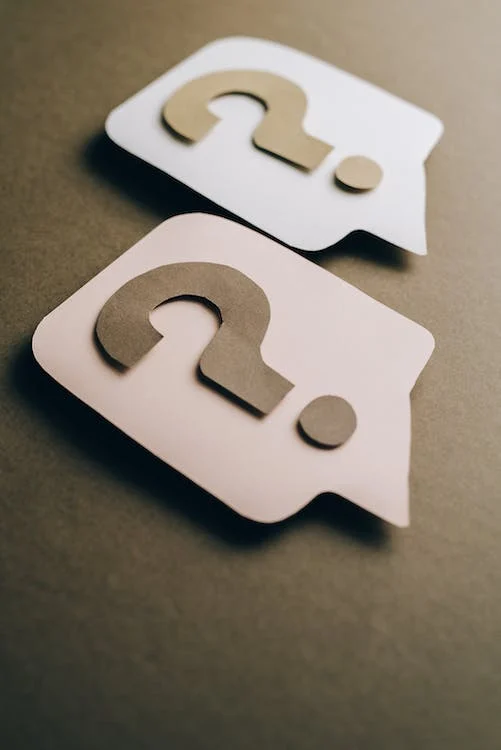
Is it a diagnosis, a label or an identity?
I’ve had a number of conversations over the years about the language used around mental illness – it’s complicated matter, made more complicated by people not knowing the power behind their words.
“I am not my illness”
A gentleman I cared for explained he detested being called “schizophrenic”, because, he explained “you wouldn’t say someone is a cancer”. What he was trying to express was that he is not his illness, he did not identify with his illness, he did not want to be labelled in this way and I really respected this.
Even professionals use words derogatorily
If I said someone “is diabetic” I would not have any opinion or judgement on their personality or any other characteristics. However, I recently heard a paramedic say this patient “is schizophrenic” with so much power, bitterness and judgement, I could tell he was casting aspersions on this person’s character (and appeared to be suggesting he be treated as lesser in some way). I had presented my service users as a “56 year old gentleman with [a number of medical complaints] and schizophrenia” as information that may lead to conclusions about the current presenting complaint. While one person may be able to say someone “is schizophrenic” without any preconceived judgements, this paramedic was not one of them.
Stigma in society is strong, it’s people who are being stigmatised that suffer, those doing the stigmatising don’t realised a subtle language change could have a powerful impact. With this small change, a person is not labelled as their illness but someone who has an illness.
“I am more than my illness”
Mental illness can have a negative impact on one’s identity. When I was diagnosed with anorexia I could have let this be my identity… i could have felt, I am not Frances anymore, “I am anorexic”. I have seen people so consumed by their illness, they may as well say “I am anorexia” – I am not a person anymore, I am an illness. But I did not want to label myself in this way, although it was true I was “anorexic” I preferred to see myself as “a person with anorexia”, then my character and personality traits could exist alongside my illness.
It has been proven that assumptions about what it means to be mentally ill such as incompetence and inadequacy (commonly held) will lead to a vicious cycle of impoverished sense of self and low self esteem, ceasing to try and work or fit into society and poorer psychosocial outcomes and sustained symptom severity. (Read the full article here.) It follows that, if you identify as your illness, you identify as incompetent and inadequate, whereas if you consider yourself to have an illness, you are not your illness, you can distance yourself from these negative characteristics.
Of course, this is down to the individual and if saying “I’m bi-polar” or “I’m schizophrenic” does not impact on their ability to see themselves as separate from the illness that’s their prerogative. Or, if they want to be identified as their illness, that’s also, up to them. Perhaps I’m saying, from within a mental illness it can be very difficult to see the path to recovery, how you see yourself in relationships with your illness can be the turning point. In my opinion, recovery and turning away from being consumed by mental illness is possible for everyone (recovery may not mean cure – but that’s a subject for a different blog).
When is a diagnostic label unhelpful?
I’ve had other conversations with people who think we should do away with mental illness diagnoses all together as the words can have such a negative impact on the experience. It can be very confusing when some words can be used by the general population, for example feeling depressed or anxious are valid and appropriate emotions, however, clinical depression and anxiety disorder are very different experiences, in some ways a million miles away from the basic emotion.
For other diagnoses there are other problems e.g. the use of derogatory terms, such as “schizo” which has been used to mean “unpredictable criminal”. Personality disorder is a confusing term, we think (as society) we understand what is meant by personality so if someone’s personality is disordered, surely, their core being is fundamentally altered/damaged? Well, no, personality disorders are extremely complex (usually with relational difficulties) and there is much discussion about changing the label to fit the experience better.

Of course, diagnoses are an essential part of communicating. It’s helpful if a collection of symptoms has a name so that treatment can be targeted appropriately. However, I have also had the experience of an inaccurate diagnosis being used which then had a negative impact on the treatment I received.
In the end, once I was on medication to control my symptoms, it didn’t matter what my diagnosies were – the therapy I needed was for someone to sit with me while I discovered who I was and grappled with emotions I’d never allowed myself to experience.
Language changes, this is normal
The word spastic used to mean “muscle spasms”, a common symptom of cerebral palsy – it is now an offensive term, because of how it was used, and has fallen out of use. The media may hide behind “the dictionary definition”, but if we follow this through, we can still use the word spastic, but we don’t. The “dictionary definition” of “schizophrenic” is “a person with schizophrenia” or “contradictory or frantic and disjointed” but this is as at odds with the definition of diagnosis. Many people still think someone with schizophrenia has a split personality or they are violent (which is an inaccurate belief). Continuing to use the word in different contexts perpetuates this misunderstanding of the illness.
Just hoping people think about what they say…
It’s not hard to change, “schizophrenic person” to “person with schizophrenia”.
Breaking down stigma is vitally important in a cruel and judgemental world. Not realising the power behind our words can have a negative impact on those affected by the illness by perpetuate societies misunderstanding, judgements and stigma. Even if you do not mean offence by the words you use it can have more of an impact than you realise.





Comments
Thank you Frances. We really don’t realise the hurt we may cause by using terms inappropriately. From now on I shall always try to use ‘has’ which I mean. If I am honest it has never occurred to me how easy it is to get it wrong and how by adding ‘ic’ leads to misconceptions. Or have I still got it wrong?
Everyone has different feelings on the subject. Many may not be affected or even notice. I find language fascinating and simply report on my personal experience and the experiences of those I support.